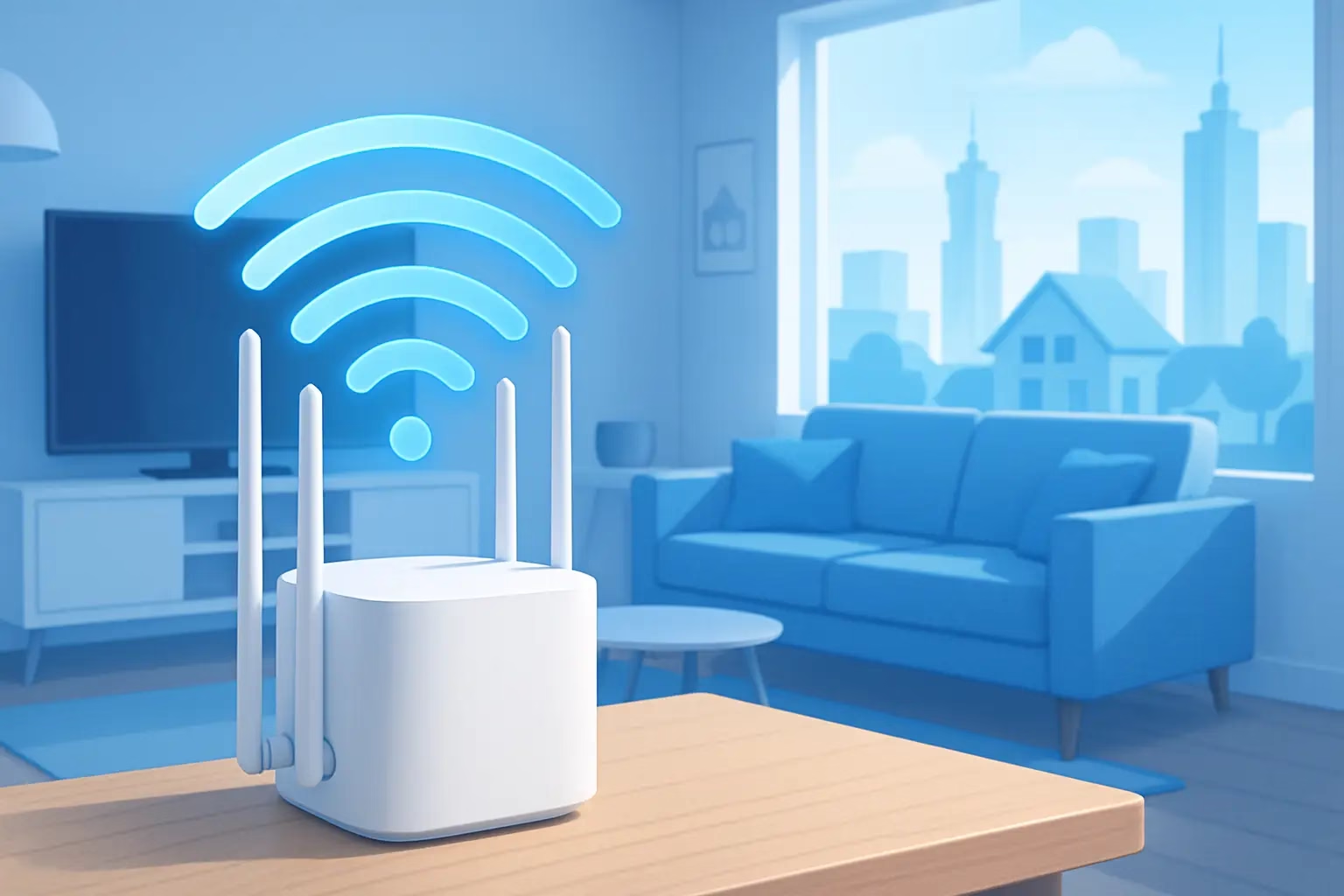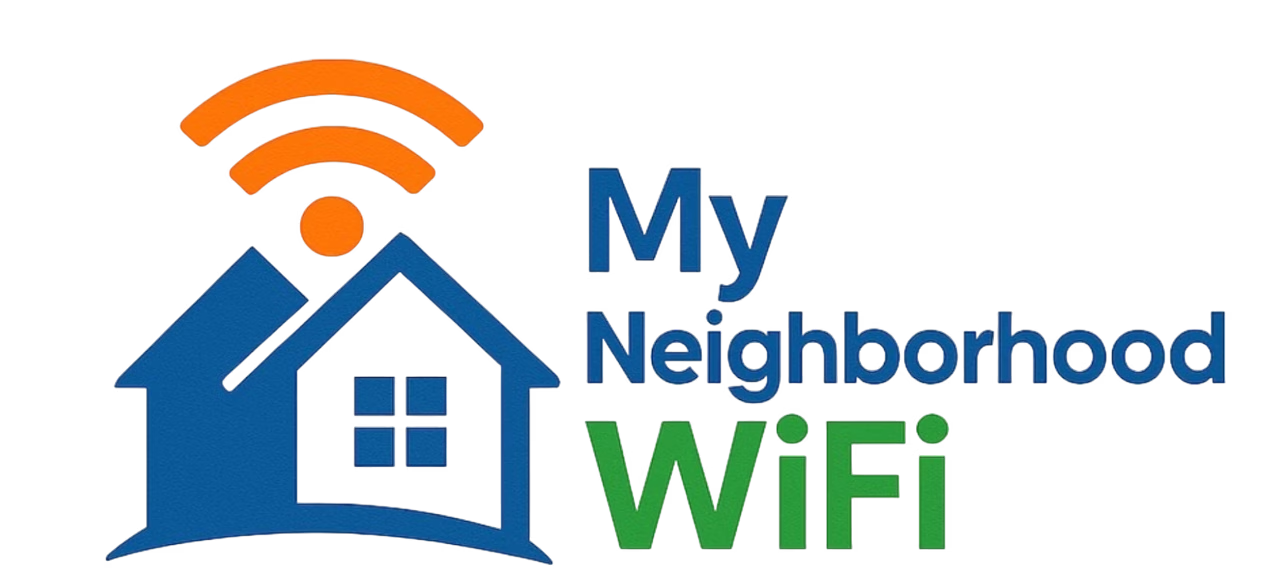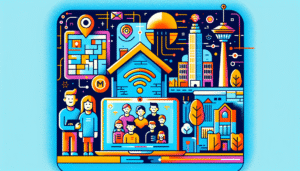
Choosing the best internet providers for smart homes in 2025 is more important than ever. With dozens of connected devices constantly communicating—from your video doorbell to your smart thermostat—the need for reliable, secure, and ultra-fast internet has never been greater. If your smart home runs on laggy Wi-Fi, you’ll quickly notice the frustration: buffering security cameras, unresponsive smart lights, and delayed voice assistant commands. A strong internet provider tailored to smart home usage is the foundation of a smoother, smarter lifestyle.
Why Smart Homes Need Strong Internet
A modern smart home isn’t just one or two Wi-Fi-enabled gadgets—it could be dozens, sometimes even hundreds of devices. Each device silently eats into your available bandwidth, and without the right connection, performance drops fast. Here’s why a powerful internet service is crucial for smart homes:
- Continuous Connectivity: Smart locks, alarms, and sensors require real-time communication, especially during emergencies.
- Bandwidth Demand: Security cameras and streaming devices can consume significant data simultaneously.
- Low Latency: Voice assistants and automation systems rely on instant responses—delays ruin the experience.
- Scalability: As your home automation grows, your internet must handle increases without crashing.
What to Look for in an Internet Provider for Smart Homes
Not every internet plan fits every smart household. A family with dozens of connected devices has drastically different needs compared to a single-apartment setup. Key features to consider include:
- Speed Tiers: Look for high download and upload speeds to handle everything from smart cameras to cloud backups.
- Uncapped Data: Smart homes generate constant traffic; data caps quickly become a headache.
- Low Latency: Vital for smart speakers, VR, and gaming consoles integrated into your ecosystem.
- Reliable Uptime: Downtime ruins a smart security system—it’s not just an inconvenience; it’s a risk.
- Strong Customer Support: When things go wrong, you’ll need quick solutions instead of hours on hold.
Top Features Smart Homes Thrive On
1. Gigabit (or Multi-Gig) Speeds
By 2025, gigabit internet has become a common need rather than a luxury. With cloud-based AI assistants and 4K/8K streaming in multiple rooms, multi-gig plans are increasingly relevant.
2. Reliable Upload Speeds
If you use security cameras that constantly upload video to the cloud, symmetrical speeds (same upload and download) will make your system far smoother. Laggy uploads can delay security alerts and video feeds.
3. Wi-Fi 6 and Beyond
The Wi-Fi technology supported by your provider’s modem or router matters. Wi-Fi 6 (and newer, Wi-Fi 7 rolling out in 2025) ensures stronger coverage, faster connections, and better support for multiple devices running at once.
4. Smart Home Ecosystem Compatibility
Different providers may bundle smart home hubs, security devices, or even energy monitoring tools. If these pair well with your Amazon Alexa, Google Home, or Apple HomeKit system, you can streamline management from one dashboard.
Best Internet Setup Tips for Smart Homes
Smart home optimization isn’t just about picking a provider—it’s about managing your devices and Wi-Fi setup properly. Here are pro-level tips to maximize your smart home performance:
- Invest in a quality Wi-Fi router or mesh system—coverage across every square foot matters.
- Use Ethernet for bandwidth-heavy devices like gaming consoles or streaming hubs.
- Partition your devices with different Wi-Fi networks (e.g., IoT devices vs. personal devices) for added security.
- Consider Reddit’s Smart Home community for troubleshooting, upgrades, and setup ideas.
Smart Homes of the Future: How Internet Powers Them
Looking ahead, smart living is moving beyond simple devices. AI-integrated assistants will anticipate your needs, smart kitchens will automate entire meals, and everything from your fridge to your EV charger will be network-dependent. Without robust internet, these futuristic conveniences won’t function seamlessly. In short, your internet provider is the real hidden partner behind your smart lifestyle.
Comparison of Smart Home Internet Factors
| Factor | Why It Matters |
|---|---|
| Speed | Handles multiple 4K streams, smart cameras, and automation simultaneously |
| Latency | Instant responses for voice assistants, sensors, and security systems |
| Scalability | Supports growth from a handful of devices to hundreds |
| Data Limits | Eliminates worries about overage with dozens of active gadgets |
| Wi-Fi Coverage | Ensures smooth access across large or multiple-story homes |
Real-World Experiences from Smart Home Owners
Communities like Quora discussions on smart homes often highlight just how variable internet experiences can be. Some users report flawless, zero-lag experiences once they upgraded to mesh systems, while others admit that even a fast plan can falter without a proper router or placement. These user-shared stories emphasize the combination of provider choice and in-home setup.
Managing the Complexity of Modern Smart Homes
By 2025, the average smart household is packed with connected lighting, appliances, entertainment systems, cameras, health monitors, and AI-driven gadgets. That creates a web of constant communication. The bigger your system, the more critical it is to plan for both reliability and redundancy. Backup internet options, smart UPS systems for modems, and even secondary LTE failover hotspots are part of advanced smart home strategies.
Final Thoughts: Building Your Ideal Smart Home Connection
The perfect internet provider for smart homes isn’t defined by flashy marketing—it’s measured by stability, scalability, and seamless compatibility with your devices. Prioritize low latency, high speeds, and dependable service to ensure your home runs like the futuristic, connected hub it was designed to be. The difference between a glitchy smart setup and a truly futuristic home often comes down to one choice: your internet provider.
“Most inquiries are answered within the same day”
Written by admin
Content writer and tech enthusiast sharing insights on internet connectivity.



